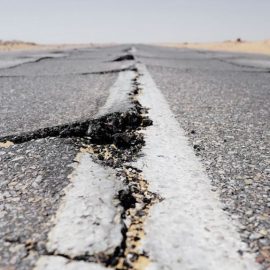

This article is an excerpt from the Shortform book guide to "The 1619 Project" by Nikole Hannah-Jones. Shortform has the world's best summaries and analyses of books you should be reading.
Like this article? Sign up for a free trial here .
Do Black Americans have the same right to self-defense as white Americans? What does America’s past have to do with the right to self-defense?
The right to self-defense is leniently granted to white people while often being withheld from Black people. These injustices can be attributed to the Black stereotypes that persist from slavery. Specifically, Black people are still perceived as uncivil and dangerous.
Here’s why Black people are denied the right to self-defense.
Self-Defense Laws in America
When a Black person commits a violent act against a white person in defense of their life, they’re much more likely to be persecuted and denied their right to self-defense than if they were white. Similarly, white people have a much higher chance of being acquitted for a violent act against a Black person by claiming self-defense, whether or not the act was justified. The authors point to the case of Breonna Taylor to highlight this point, who was in bed when she was shot six times and killed by police officers during a raid on her Louisville, Kentucky home. The officers involved were acquitted because they were considered to be acting in self-defense.
| Acquittal Rates of Blacks and Whites in Acts of Self-Defense Studies confirm the authors’ point that whites are much more likely to be granted the right to self-defense compared to Black people. Experts explain that in 17% of cases where a Black man was killed by a non-Hispanic white person, the killing was officially justified as self-defense. However, in general killings of one person by another, regardless of race, only 2% were officially justified as self-defense. Overall, white-on-Black killings are roughly 230% more likely to be deemed justifiable than white-on-white killings. And researchers explain that whether or not the defender truly believes he’s in danger is a major factor that leads these killings to be justified as self-defense—even if the perceived danger is based on a racial stereotype. Breonna Taylor’s case highlights this point. Since the officers did not knock and announce before entering like they were ordered to, Taylor’s boyfriend feared intruders and fired a single shot that wounded an officer’s leg. In response, the officers blindly fired 32 shots in the dark, striking Taylor six times. Despite Taylor’s killers being armed and trained police officers, they were acquitted under “self-defense.” However, massive public outcry (like #SayHerName on social media) led officials to pass a law in Louisville that requires officers to announce themselves before entering a home. And Taylor’s family was paid $12 million by the city for her wrongful death. |

———End of Preview———
Like what you just read? Read the rest of the world's best book summary and analysis of Nikole Hannah-Jones's "The 1619 Project" at Shortform .
Here's what you'll find in our full The 1619 Project summary :
- A reframing of American history with the institution of slavery at its core
- How democracy as we know it today was largely built by enslaved Blacks
- The racist institutions that persist today that originated from slavery






